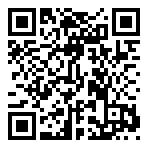Wild Pig Symposium on the Border
Wild Pig Symposium On the Border will be held October 18, 2019, at 6:00pm (Mountain Standard Time) at the Legion Hall in Sweet Grass, MT.
The Speaker line up for the evening. We will also serve coffee and cookies and allow time for good conversation.
Bob Brickley
Bob is a cattle and horse rancher and also grows hay and grain on his Moose Mountain Ranch, in Kennedy, Saskatchewan. His family holds an annual horse sale the second Saturday in September.
He is chair of the Moose Mountain Wild Boar Eradication Committee, which is a group of farmers and rancher who work together as volunteers to eradication of wild swine in their area. Bob and his group have experimented and develop highly effective ways of killing “nests” of feral pigs and trapping family groups called “sounders.” There are some unique behaviors of feral pigs in the north cold country as compared to southern warm weather feral pigs.
Ryan Brooks
Ryan was raised on a farm east of Winnipeg. He is currently an Assistant Professor in the Department of Animal and Poultry Science. His research program includes research on wildlife in grassland, prairie parkland, boreal forest, and arctic ecosystems such as feral pigs, elk, farmland moose, white-tailed deer, polar bears, and caribou. Ryan heads up the Saskatchewan Wild Boar Project and in June of this year coordinated the Wild Pig Symposium 2019: Mapping, Modelling, And Mitigating Invasive Wild Pigs In Canada. His team maps and monitors the spread of wild swine in Saskatoon, tests and monitors for diseases and parasites associated with the wild swine. He is also involved in eradication actions such as shooting net guns from helicopters and then either collaring or euthanizing the pigs captured and collecting samples. Ryan as head of his team is a wealth of knowledge and full of opinions on what needs to happen and happen now.
Tahnee Symanski, DVM
Tahnee is the Assistant Montana State Veterinarian and works with the Montana Invasive Species Council for the Campaign “Squeal on Pigs.” The Department of Livestock is the agency with authority over feral swine in the state of Montana. Due to the disease risks and environmental damage caused by feral swine, in 2015 the Department of Livestock, Animal Health Division brought forward legislation that prohibited the transportation, possession, and hunting of feral swine. https://leg.mt.gov/bills/mca_toc/81_29_1.htm
John Steuber
John has been the State Director for Montana USDA, APHIS, Wildlife Services for the about the past 13 years. He understands the needs of ranchers and farmers to prevent damage to their livestock and crops. His agency is working in coordination with the Montana Department of Livestock to monitor for wild pigs and eradicate them before they can get a foothold in the state of Montana.
Dale Nolte
Dale is National Feral Swine Initiative Coordinator for the USDA, APHIS and is based out of Fort Collins, Colorado.
“Wild boar, razorback, feral hog, wild pig — these are just some of the names we attribute to one of the most destructive and formidable invasive species in the United States. Feral swine adapt to just about any habitat, have few natural enemies, and reproduce at high rates. As such, their population is growing rapidly nationwide. At 5 million animals and counting, feral swine are now found in at least 39 States and cause approximately $1.5 billion in damages and control costs each year. Their damage is diverse and includes destroying native habitats and crops, eating endangered species, and spreading disease. Natural resource managers, researchers and academics nationwide are grappling with how best to address the challenges of feral swine management.
Feral swine are hunted by the public in some States for recreational purposes; but hunting will not solve our country’s feral swine problems.
“Feral swine don’t know boundaries and what happens in one State affects neighboring States,” states APHIS’ new national feral swine initiative coordinator Dr. Dale Nolte. “Only through a concerted, comprehensive effort with the public and our State and Federal partners can we begin to turn the tide on feral swine expansion and reduce their negative impacts to our economy and environment.” http://bit.ly/2m3kpsz


